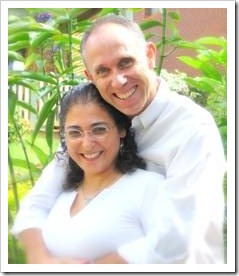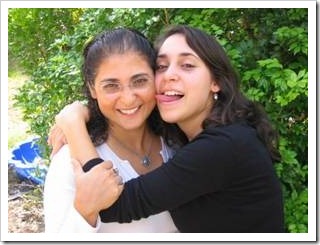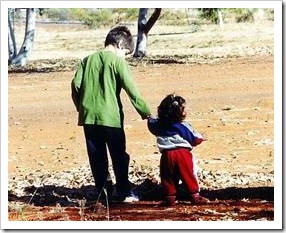Together we stand, divided we fall
– Aesop

From childhood, kids understand that they cannot do everything on their own. From birth, we all depend on someone to give us food, care and love us. Old research on the importance of caring in the first month of a baby’s life discovered that not having at least one permanent close figure damages the child’s physical and emotional development. Later research on longevity and happiness discovered that people in meaningful long-term relationships are happier and live longer. We could interpret having a good and loving relationship as the equivalent of the Vulcan greeting “Live long and prosper” (from Star Trek).
Unfortunately, building relationships is not a subject we study at school, although we sit for its test every day of our life. Some say it is a genetic predisposition – you are either born with social skills or without them. There is some truth in this, as some people are much more natural “social butterflies” and others are just not, but I tend to think of social skills as being mostly learned. You can get them easily from your socializing agents (parents and role models) if they have them or have to work hard to develop them yourself.
I did not get my social skills from my agents, so I had to hold on to “What doesn’t kill me makes me stronger” and survive many “near death” experiences before the idea sank in: If I want to survive, I must have good relationships with my parents, siblings, friends and teachers and I had better learn the rules FAST!

I personally discovered the rules the hard way. At the age of 16, after being a total failure and being kicked out of school, without friends and having constant fights with my siblings and my parents, I figured there was something I needed to understand. By the time I finally got it, I had already had countless failed encounters with people around me that I had to get over. It made me vow that my kids would get good social skills from me from the second they were born.
So even if you are not the most social person in the world, your kids can be!
You can learn social skills
Only when I learned the rules, I realized what had been blocking me from succeeding in life. There was a huge difference between being a social person and being a person with social skills. I was a very social person – I loved people – but I just did not know the right thing to say or do that would keep them around me.
The definitions of friendships, being together, collaboration, sharing and acceptance of a person without social skills are different from those of someone who can read the rules of relationships and follow them. When you talk to someone who lacks these skills, they cannot tell why people say and do what they say and do. For a person without social skills, there is no connection, no pattern they can rely on to interpret and predict the words and actions of others. In special education, these are categorized as learning difficulties. Although this difficulty does not translate directly into poor academic achievements, it brings a lot of pain and suffering.
When I examine my personal life and adventures, I see I have developed and progressed thanks to my ability to build relationships. It is not what you know but who you know that counts. Therefore, I believe that if I want my kids to develop and progress and prevent them from pain and suffering, I need to teach them the art of friendship – the Do’s and Don’ts of building relationships.
The art of Friendship

In his book “How to win friends and influence people”, Dale Carnegie wrote what I consider the bible of building relationships. Carnegie wrote his book in 1937 and it is amazing how relevant it is now. I copied the rules and used my explanation and suggestions for each of them. I hope you will find inspiration in those timeless rules.
Never criticize other people
When you criticize, you build a wall between the two of you, a separation. People without social skills put the walls not to keep others away but to see who cares enough to knock them down. Unfortunately, no one likes to be constantly tested for how much they care. Every time you criticize, the wall grows taller, thicker and harder for the other person to break down.
When you point out something “wrong”, do not offer suggestions for fixing, because no one likes to be considered “damaged” and in need of fixing. After criticism, your suggestions are a waste and damage the relationship even more.
To overcome criticism, develop acceptance and understanding. Every time you have criticism towards someone, come up with a possible explanation for why they have done things that way. When you express understanding, the other person categorizes you as a kind person and would love to hang around you.
Try seeing things from the other person’s point of view

To be able to see things from the other person’s point of view, learn about their interest, fears, upbringing and desires and you will find some similar experiences you can leverage later in your interactions.
Do not condemn others
When you are condemning others, you are telling them you are not happy with something about them. Again, you are imposing your own standards and expect the others to live by them. People who live by others’ standards do not stand a chance in the social jungle, because they suffer from conflicts among the standards of the people around them.
To overcome condemning others, practice the rule, “If you have nothing nice to say, shut up!”
Do not complain
When you complain, in tells others that you are not happy and that you expect them to live by your standards, because they are the “right” ones. People who talk about the “right” thing to do have an attachment to specific outcomes and create the impression they will never be pleased.
To overcome the urge to complain, use the rubber band technique. Put a rubber band on your wrist and every time you complain, pull it and let it go so it snaps back on your wrist. After one day of pain, your complaining will start to shrink and your social life will start to flourish.
Stay away from critics and complainers
As a social rule, it is recommended to stay away from people who criticize, condemn and complain, because hanging around them will give you a sense of inadequacy and damage your self-esteem. Also, when others around you talks negatively and you want to belong, you are likely to join in.
It is much harder is to stay away from yourself if you are the one criticizing and complaining, but you can change your routine and keep away from setting that trap you in this mode.
Learn people’s names

Show sincere appreciation
Find reasons to show your appreciation and be generous with praise. Everyone likes to hear good things about themselves. People with social skills understand that praising others is an act of kindness and by giving, they receive. When you praise or appreciate others, they will tend to do the same to you and will share their experiences with you.
Be genuinely interested in other people
[Note to those who attend networking functions]
If you pretend to be interested in others, they will tell that you have some selfish motive that will keep them away from you and make them hide their true self. When you ask them something, ask because you want to know, not because you want to lead them to something that will serve your own interests. If you are truly interested in people, they will feel special and be more open. Eventually, this will come back to you in surprising ways.
Listen
In every conversation, listen more than you speak. Encourage people to talk about themselves and use questions to keep the focus on them. People are much more interested in their own world than they are in yours. If they feel they need to listen too much, they will give up your company, but if they feel heard, they will more likely ask about you later and pay attention to what you say.
Make others feel important
Everyone needs to feel special. If they feel special around you, they will hang around you more. When you do talk, try talking about them and what interests them and give them praise and appreciation. This will make people listen to you more.
Smile
A smile is a sign of kindness and goodwill to everyone. When people go through tough times, they are drawn to those who smile for comfort and encouragement. You can check this next time you go shopping – just smile at people and see how their face lights up. If you are not much of a smiley person, stand in front of the mirror and practice.
Do not argue

People do not like being in a relationship in which they need to fight constantly and they will avoid the interaction with you if you are argumentative.
To overcome the tendency to argue, adopt the understanding that no one wins an argument, because whenever you win an argument, you lose a friendship. Recognize the arguments before they happen and avoid them. You do not have to say the last word. You do not have to convince the whole world you are right. You do not have to put lots of effort into making others think like you. The more you do it, the fewer relationships you will have.
Never say “you are wrong”
Every time you tell someone they are wrong, you contradict the previous rules of criticizing and arguing. Telling people they are wrong is another way of saying “I know and you don’t” and “My standards are the right ones”. It builds a wall and starts a fight.
The other person will immediately get into a defensive position or lose interest in communicating with you.
You can always say, “I think we should do it in another way and those are my reasons for it”, without saying anything negative about your partner to the relationship.
Start every interaction in a friendly way
The beginning of an interaction will set the tone for the whole interaction and help the other person remain relaxed and calm and get into the interaction comfortably.
It is actually very simple if you remember the obstacles of every relationship. Learn them and avoid them. Do not start an interaction with criticism, condemnation, complaining or telling someone they are wrong.
You can show interest in the other person, give them a complement and express a desire to be in the interaction.
A drop of honey catches more flies than a gallon of gull
– Abraham Lincoln
Apologize when you are wrong, but never make others apologize
If you think you have said or done something wrong, apologizing is a way of saying, “I want to stay in this relationship”.
A big mistake people make is thinking that the apology needs to be mutual and asking the other party to apologies too. When you do that, you are telling the other person they are wrong and the damage to the relationship is already done. Even your apology is not worth much after this.
When you apologies, stick to the apology and make it short and sweet. Never explain the reasons you have done what you have done and never talk about the wrongs of others after you apologize.
Treat others as honest, decent and fair

People do not like hanging around others who think their definition of honesty and fairness is superior and will try to avoid spending time with them. If you use those phrases in your conversations, notice how they immediately change the dynamics of the interaction and damage the rapport.
Notice when you have such thoughts. First, keep them to yourself. Second, do some personal development work and refine your definitions of honesty and fairness to eliminate them from your mind.
Allow others to “save face”
When others make a mistake, they usually know it. If you emphasize it, you are making them look bad and feel even worse.
You can help them by saying, “It’s not so bad”, “It will be fine”, “This happened to me once”, “I sometimes forget too” or making any other statement that makes them not judge themselves too hard. They will consider this an act of kindness, which is the currency of every relationship. If you give encouragement, it makes it easy for the other person to correct his mistakes.
This is my simple religion. There is no need for temples, no need for complicated philosophy. Our own brain, our own heart is our temple, the philosophy is Kindness
– Dalai Lama
To grow wiser and be strong and happy, we need to build long-lasting relationships. Kindness is the currency of every relationship and the more skilled we are in the art of friendship, the better our life will be.
Start early!
Wishing you lots of friendships,
Ronit











